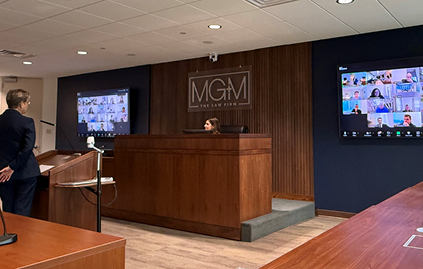Katharine Perry is a seasoned litigator with 28 years of experience and a reputation for effective representation in complex product liability, medical malpractice, environmental, construction, infectious disease counseling, and toxic tort cases. She has won noted victories for her Massachusetts, regional and national corporate clients, including in 2017 successfully arguing an appeal before the Connecticut Supreme Court that reversed a verdict and clarified the expert evidence necessary to establish proximate cause.
Katie has built her toxic tort practice on a deep foundation of experience, serving on national asbestos litigation defense teams and coordinating complicated, multi-jurisdictional toxic tort litigation. She also claims federal and state jury trial experience in medical malpractice matters and has taught a Medical Malpractice Case Study at Northeastern University’s Legal Nurse Consulting Program in Boston. She has more than two decades of experience representing general contractors and subcontractors in third-party claims, contract claims and environmental compliance matters. Within construction litigation, her clients have ranged from global companies to local community contractors.
Additionally, Katie represents clients in a variety of per-and polyfluoroalkyl substances (PFAS) related matters & class actions, advising them on alleged personal injuries, property damages and impact on natural resources. She offers strategic guidance on navigating evolving PFAS regulations at both the state and federal levels, ensuring her clients are well-prepared to handle complex legal and regulatory challenges.
Her practice extends across New England, with bar admissions in numerous state and federal courts as well as the Supreme Court of the United States.
Katie resides in Hamilton, Massachusetts, with her husband and three children.




